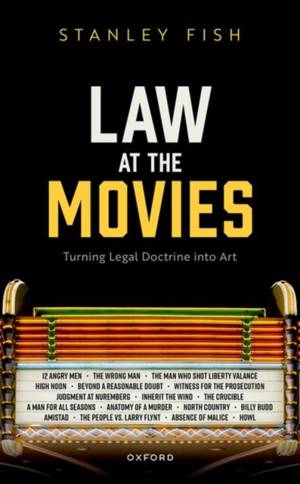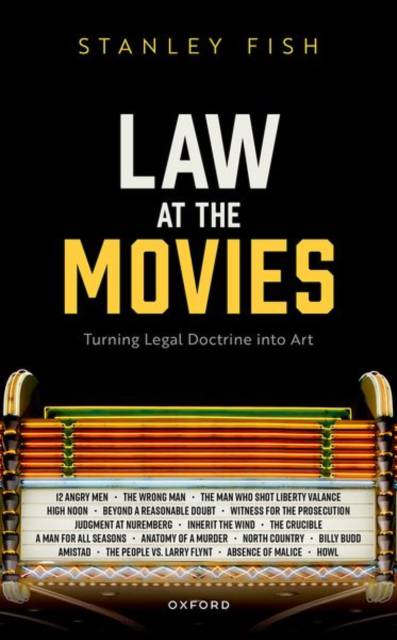
- Afhalen na 1 uur in een winkel met voorraad
- Gratis thuislevering in België vanaf € 30
- Ruim aanbod met 7 miljoen producten
- Afhalen na 1 uur in een winkel met voorraad
- Gratis thuislevering in België vanaf € 30
- Ruim aanbod met 7 miljoen producten
Zoeken
Omschrijving
This book asks "How can legal doctrine be turned into filmic art?" By "legal doctrine" Stanley Fish does not mean the sonorous abstractions that usually accompany the self-presentation of law--Justice, Equity, Equality, Liberty, Autonomy, and the like. Rather he has in mind the specific rules and procedures invoked and analyzed by courts on the way to declaring a decision--lawyer/client confidentiality, the distinction between interdicted violence and the violence performed by the legal system, the interplay of positive law and laws rooted in morality, the difference between civilian law and military law, the death penalty, the admissibility of different forms of evidence. In the movies he discusses, these and other points of doctrine and procedure do not serve as a background, occasionally visited, to the substantive issues that drive the plot and provide the characters with choices; they declare the plot, and character is formed and tested in relationship to their demands. Apparently technical matters are pressed until they occupy both foreground and background and become the movie's true subject. If large, abstract concepts emerge, they emerge at the back end of doctrine and are, in effect, produced by doctrine. These are not law-themed movies; they are movies about the unfolding of legal process.
Specificaties
Betrokkenen
- Auteur(s):
- Uitgeverij:
Inhoud
- Aantal bladzijden:
- 224
- Taal:
- Engels
- Reeks:
Eigenschappen
- Productcode (EAN):
- 9780198898726
- Verschijningsdatum:
- 29/05/2024
- Uitvoering:
- Hardcover
- Formaat:
- Genaaid
- Afmetingen:
- 145 mm x 224 mm
- Gewicht:
- 385 g

Alleen bij Standaard Boekhandel
+ 67 punten op je klantenkaart van Standaard Boekhandel
Beoordelingen
We publiceren alleen reviews die voldoen aan de voorwaarden voor reviews. Bekijk onze voorwaarden voor reviews.











